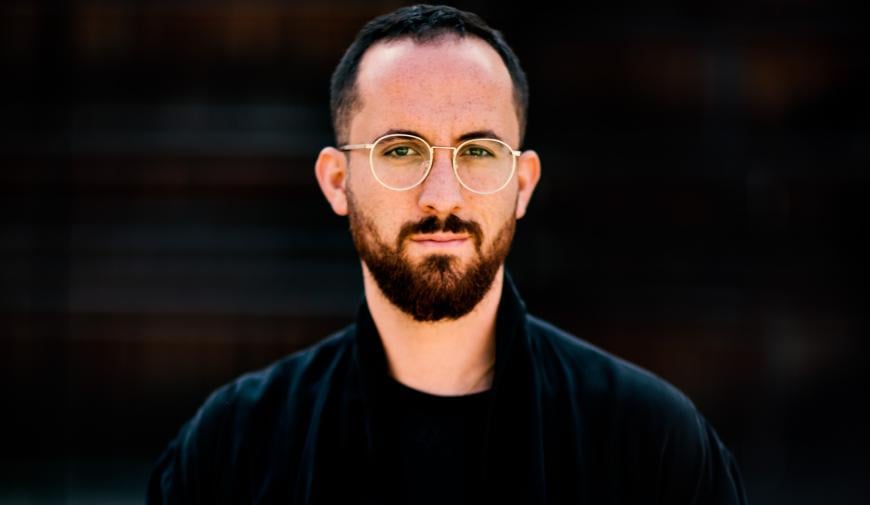
When The New Yorker’s Alex Ross described Igor Levit as “a pianist like no other,” he wasn’t hyperbolizing. Indeed, the Russian-born, Berlin-based musician known for his superb interpretations of Beethoven and Bach — the latter also including a collaboration with performance artist Marina Abramović — as well as his dedication to works by, among others, Frederic Rzewski and Ferruccio Busoni, shot to international fame in March 2020 with his audacious Hauskonzerte (house concerts).
As the global pandemic precipitated a lockdown, Levit came up with the then-radical notion of livestreaming concerts — 52 in all — from his living room via Twitter, with hundreds of thousands of people logging on to witness an artist at work. Then, in May of that year, as millions were taking to the streets to protest the killing of George Floyd, Levit again livestreamed a performance, this time from a studio in Berlin: Erik Satie’s Vexations, an enigmatic composition consisting of four lines that the pianist is instructed to repeat 840 times, making for a runtime of nearly 19 hours (Levit’s rendition clocked in at about 15).
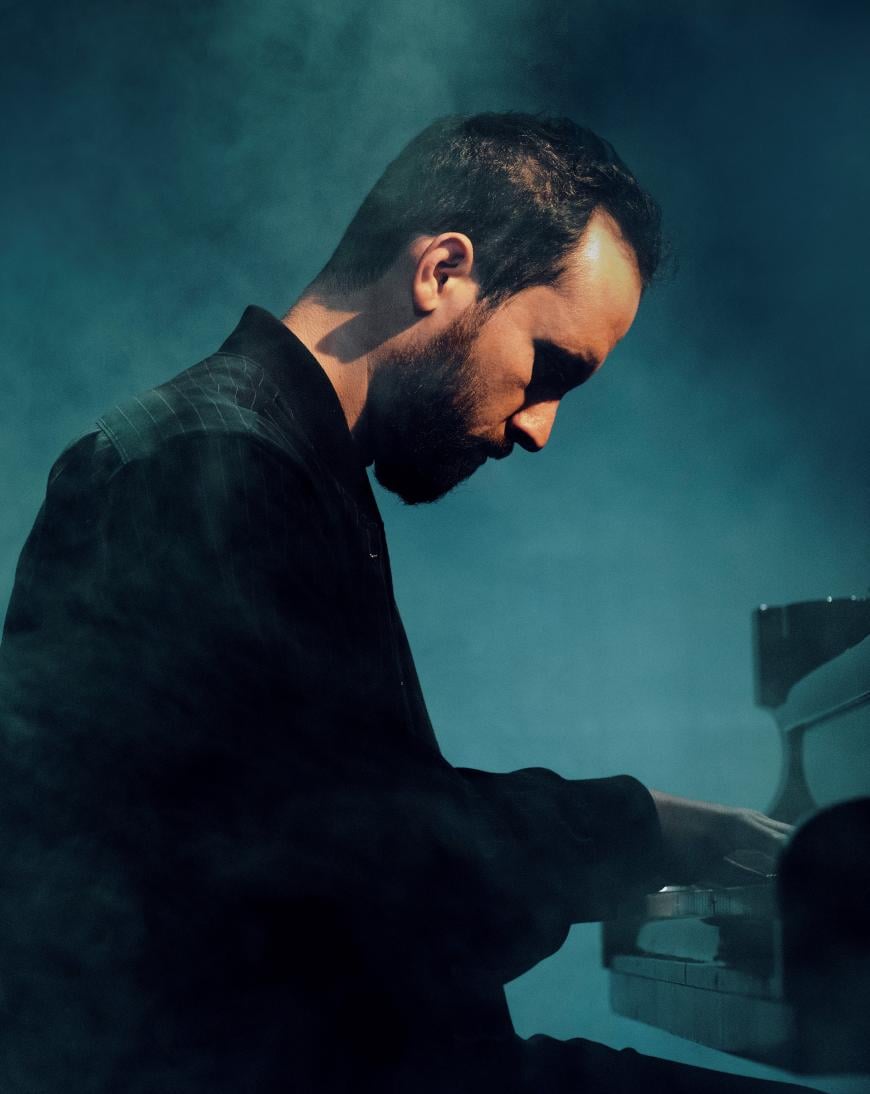
In other words, Levit, who is also a passionate political activist, might very well be a musical unicorn, albeit one that audiences will once again be privy to hearing in recital at Walt Disney Concert Hall on March 12, when he performs Beethoven’s last three piano sonatas. But until Levit’s house concerts, his musical path had been relatively straightforward. Born in 1987 in Gorky, now Nizhny Novgorod, Russia, he began piano studies with his mother at age 3, with the family then moving to Germany in 1995.
Completing his musical education at Hannover’s Hochschule für Musik, Theater, und Medien, where he was appointed professor for piano in 2019, Levit has also been the recipient of numerous honors: He earned second prize at the Arthur Rubinstein International Piano Master Competition in Tel Aviv in 2005. Fast-forward to 2018, when Levit received the Gilmore Artist Award, a $300,000 prize given to a concert pianist once every four years, and then to 2020, when he was recognized with the Order of Merit of the Federal Republic of Germany.
Levit’s discography is also impressive, with albums including a three-disc collection of variation sets — Bach’s Goldbergs, Beethoven’s Diabellis, and Rzewski’s The People United Will Never Be Defeated (36 variations on a Chilean song). And as recently as last June, Levit’s album On DSCH, which included Shostakovich’s 24 Preludes and Fugues, was awarded Recording of the Year, as well as the Instrumental award, from BBC Music Magazine.
In addition, Levit, who’s been a frequent soloist with the world’s leading orchestras, is one of the Vienna Musikverein’s portrait artists for the 2022–2023 season. And in June of this year, Levit joins the San Francisco Symphony and Esa-Pekka Salonen for a multiweek residency.
SF Classical Voice caught up with Levit by phone from Berlin, where he was enjoying some downtime before resuming his uber-busy schedule, which also includes him curating a new piano festival for the Lucerne Festival in May. Among the myriad topics we discussed were his love of Beethoven, several of his musical influences, and why he won’t “just shut up and play,” a phrase that’s been hurled at him in several languages.
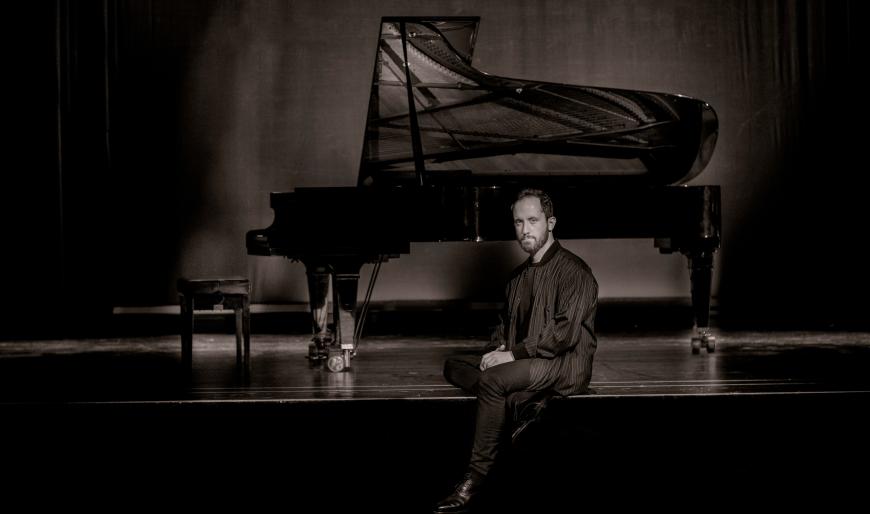
I was one of the hundreds of thousands who watched your mind-boggling performance of Vexations. How would you describe the experience — physically, emotionally, psychologically — and would you ever do the work in front of a live audience?
That means a lot, thank you. From the end of your question — I wonder who would come and listen to the whole thing in a live performance? I would be tremendously happy to do it again. But I don’t see doing it just for a solo performance; I wouldn’t sit through that. Who would?
[That said], it was one of the most memorable experiences of my entire artistic life. Surprisingly, there were no physical issues whatsoever. Mentally, there were three or four moments of pure anger. I thought, “How can it be I’ve been playing for seemingly 17 billion hours and there’s still 712 pages left? How is that possible?”
But altogether, it’s like a truth — a kind of celebration for me [because we were in the] middle of lockdown, in the middle of [this time when] no one ever knew whether performances would come back. With COVID, what it means with the pandemic, how many people will die? It was a very grim time, but doing that was uniquely wonderful.
And nobody can say that you don’t have a sense of humor! During lockdown, you also played Billy Joel’s “And So It Goes,” which wouldn’t be so unusual, except you did it sitting cross-legged on the floor with your back to the piano, your arms raised over your head and bent at the elbows in order to plunk out the tune. Was this some sort of new yoga pose or what?
You think that was a yoga pose? It was the middle of the first lockdown; I was bored. It’s one of my most beloved songs, so why not try to sit down and play it backward? What else am I supposed to do? I had made my sourdough bread; now we have nothing to do, [so] let’s just get mad. It was fun, but it has nothing to do with yoga. I love yoga — but it wasn’t that.
So, how did the house concerts help you find your voice as a citizen activist? You’ve said, “Maybe for the first time do I understand what it means to speak of music as something life-keeping,” that you’d never been freer. Do you still feel that way?
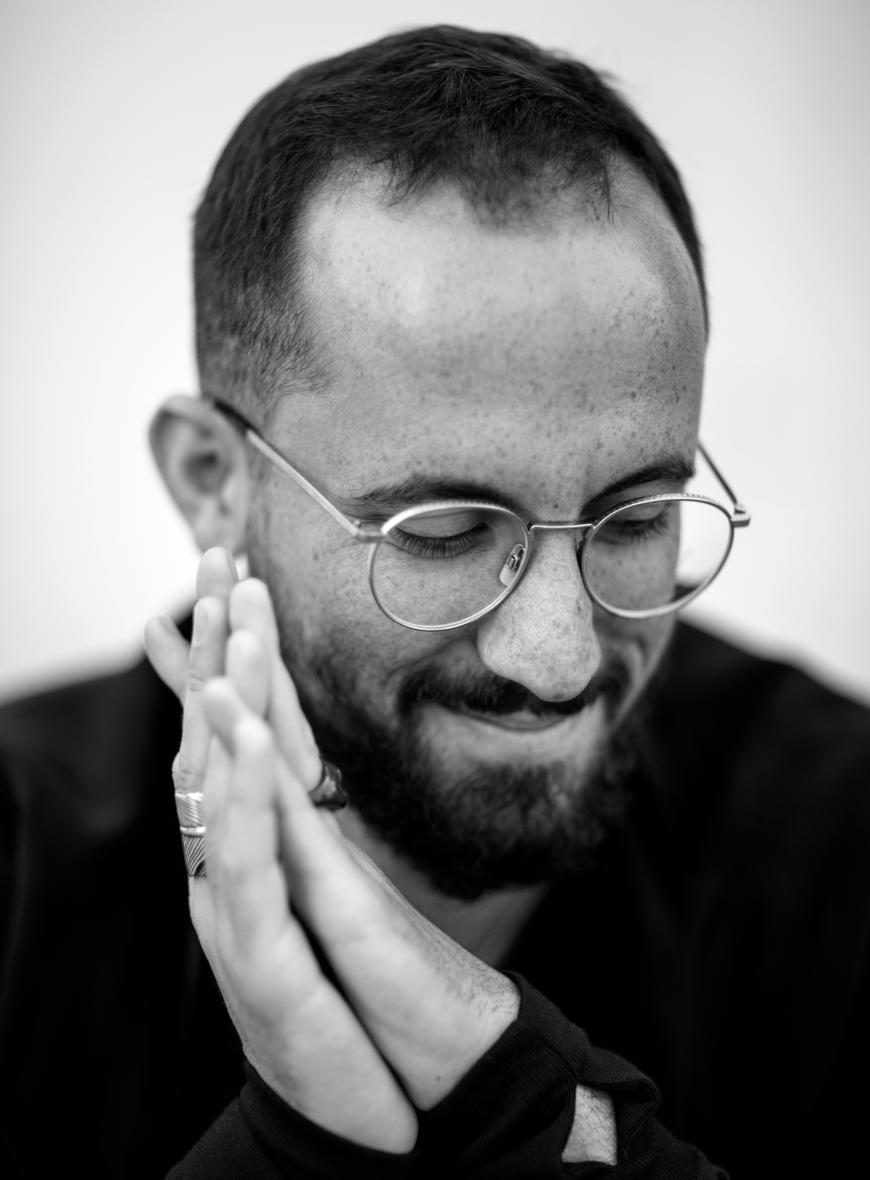
I have been very outspoken and very active, [but] it had nothing to do with the House Concerts or COVID. The house concerts were simply about giving solace to people, and to myself, in a very, very grim moment. I was trying to tell people there’s still beauty out there — sharing some time together without seeing each other — with music. That’s it. It’s tremendously important to me and seemingly many other people, which makes me very happy.
Let’s talk about your L.A. recital: Beethoven’s last three sonatas. You made your North American debut in 2014 at the Park Avenue Armory [in New York] with these same works, and I see that Mitsuko Uchida is currently touring them, too. Why come back to them now? How do you keep discovering new things in the music, and what can Beethoven teach us about our world today?
They provoke curiosity. They never stop surprising me, and it’s not that I could play these every single day. Sometimes I need breaks, but my curiosity and willingness to dive in is as vibrant as ever. Coming back to these pieces after quite a long time brings me joy.
What can Beethoven teach us? I don’t know if that’s the right question; I don’t live his life. He lives in his own time, with his own surroundings. It’s just if we see what music and culture can do — primarily bring people together — it create spaces where people meet and share feelings and emotions on a very deep basis. That can teach us a lot about what human beings could theoretically be like, and what they unfortunately choose to be.
Or, as one show host, Bill Maher, once said, “Humans are not good people.” Unfortunately, that happens to be true. But I would say humans are often not good people. What music and the experience of hearing music can teach us is that they have the ability to be very humane people. They just need to choose to be humane, to choose to be good people.
The “good people” category would have to include Frederic Rzewski and Thelonious Monk. What kind of influence did Rzewski have on you, and how did listening to Monk impact the way you play the piano?
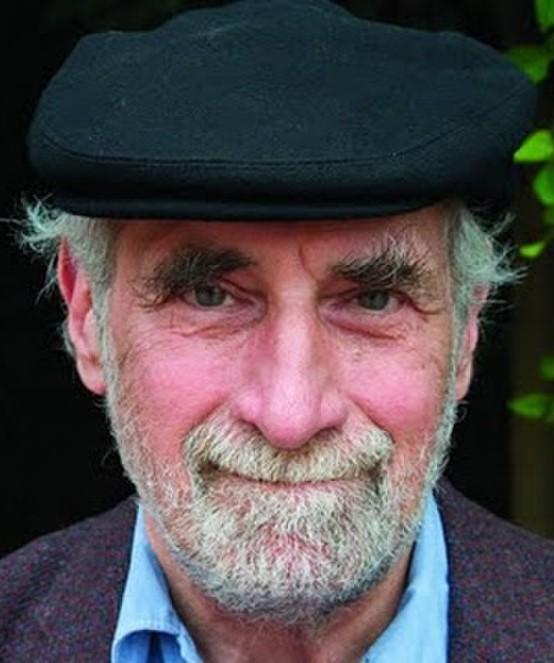
Frederic, as difficult as he was, what a true mensch was this guy. What a great man he was and a uniquely great composer. In his own way, he was an unapologetic truth-teller. He wouldn’t care if you’re enjoying his presence. He would just stick it to you — nail it to your face. There’s this truth-telling element, which I always found to be sound — the way he communicated [in] music and as a human being, as a mensch.
I never knew Monk, but I got to know him through Frederic. He was a great admirer of Monk — the way Monk even touched the piano, the directness of his tone, the very approach to what he does, was also an unapologetic truth-telling, which I feel to be mentally inspiring.
What is your practice routine like, and why aren’t you concerned about the acoustics in a hall or the quality of a piano when you perform?
That’s not the most important thing to me. I would like to make music for people. That’s way more important than questions about where I play. I would play anywhere on anything as long as there are people, an instrument. I don’t have a practice routine. I did not play today. I may 100 percent play tomorrow. I can’t tell you what or how long, but no, I don’t have a routine.
During the pandemic you also collaborated with Hamburg journalist Florian Zinnecker on a kind of autobiography, Hauskonzert, published in German in 2021. The English translation was recently released from Polity press, and much of it details your Twitter concerts. But you’ve since deleted your Twitter account. Why?
I closed Twitter because of many reasons; many of those are personal ones, but bottom line is 11 years have been enough. It’s enough. So much is good about it. So much is rotten about it. I’ve seen it all on Twitter. It’s not that I’m less active or less outspoken. My personal reasons are personal reasons. The feeling of safety is not for me necessarily but for people around me, those I care for. These were 11 incredible years, [but] Instagram is now the only thing I have in terms of social media.
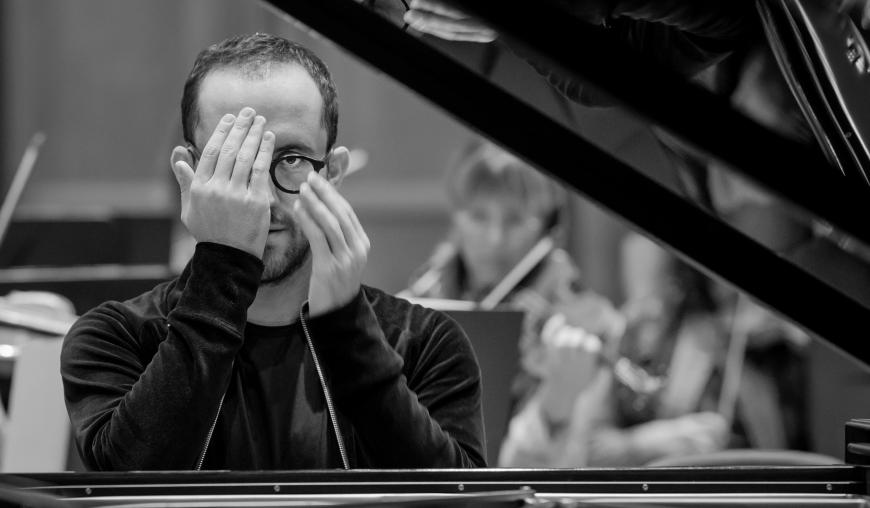
Coming back to your activism, why is it important for you to keep speaking out, or as someone once said, “Why don’t you just shut up and play?”
If someone were to tell me, “Why don’t you just shut up and play?” my response, in a very gentle way, would be something like, “Why don’t you just shut up and go?” It’s just that simple. It’s an easy response, and the true response, well, would be simply, “Because I can.” I just think that this is what being a citizen means, in general, to care for other people. That’s it. Plain and simple. I do. I always did. This has nothing to do with my job, that I’m a pianist. I’m just a caring human being. I will not stop just because some whatever, whoever, would come and say that.
In light of all we’ve discussed, I’m wondering if you consider yourself an optimistic person?
Let me quote James Baldwin. He once said, “I cannot be a pessimist because I’m alive,” and I think that’s all I have to say about that. Pessimism is not an option for me. As long as I live, there’s reason to make one step after another. I have no time to be a pessimist. I’m a realist. It’s a decadent thing I cannot afford. Not all humans are not good people, so try to convince the others of being a nice person.



